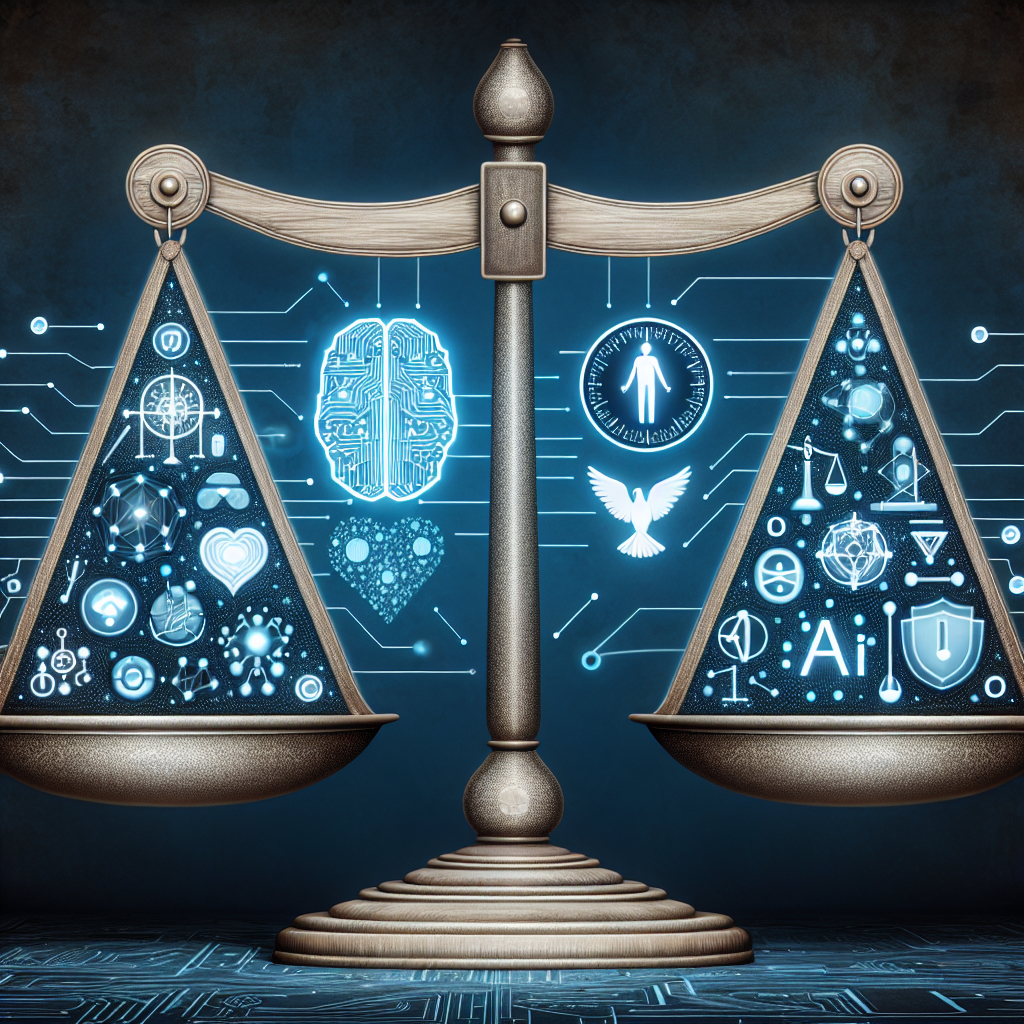Artificial Intelligence (AI) is revolutionizing various sectors, with healthcare standing out as one of the most transformative domains. In particular, medical diagnostics powered by AI has shown the potential to enhance accuracy, reduce costs, and improve patient outcomes significantly. However, as we embrace these advancements, ethical considerations cannot be sidestepped. In this article, we will delve into the ethical landscape of AI in medical diagnostics, exploring the balance between innovation and responsibility.
The Rise of AI in Medical Diagnostics
Understanding AI in Healthcare
Artificial Intelligence in healthcare involves the use of algorithms and software to analyze complex medical data. This technology supports healthcare professionals in making diagnostic decisions, predicting patient outcomes, and personalizing treatment plans. A report from McKinsey estimates that the potential annual value of AI in healthcare could exceed $150 billion by 2026.
The Promise of Improved Diagnostics
AI algorithms can analyze medical images, patient records, and genetic information faster and often more accurately than human practitioners. For instance, studies have shown that AI can achieve diagnostic accuracy comparable to, or even surpassing, that of dermatologists in identifying skin cancers.
External Link
- To explore how AI’s capabilities are changing the landscape of diagnostics, visit McKinsey on AI in Healthcare.
Ethical Implications of AI in Medical Diagnostics
Data Privacy Concerns
The implementation of AI systems in healthcare raises significant concerns regarding patient data privacy. Medical data is highly sensitive, and its misuse can lead to privacy violations. Regulations like the Health Insurance Portability and Accountability Act (HIPAA) aim to protect patient information, but the growing use of AI poses new challenges.
Key Points:
- Data Handling: Companies must ensure that AI systems comply with existing regulations while offering transparency in data usage.
- Informed Consent: Patients should be informed about how their data will be used, particularly in AI-driven diagnostics.
Bias and Fairness
Artificial Intelligence systems are not free from biases, as they learn from historical data. If the training data reflects existing healthcare disparities, AI systems may perpetuate these inequalities. This can lead to misdiagnosis or inadequate treatment for certain demographic groups.
Points to Consider:
- Diverse Data Sets: Developing diverse training datasets is crucial to ensure that AI systems are equitable in their diagnostics for various populations.
- Ongoing Monitoring: Continuous evaluation of AI systems is necessary to identify and rectify biases.
Accountability and Legal Responsibilities
One of the most pressing ethical challenges involves accountability in the event of misdiagnoses. If an AI system incorrectly diagnoses a condition, who is responsible? Is it the healthcare provider, the technology developer, or the institution using the technology?
Important Considerations:
- Defining Responsibility: Clear guidelines must be established to determine liability in case of errors.
- Legal Frameworks: Existing legal frameworks may need revisions to address new technologies and their outcomes.
Innovation vs. Responsibility
Striking the Right Balance
Innovation in AI should not come at the cost of ethical considerations. The responsibility lies with stakeholders, including healthcare providers, technology companies, and policymakers, to ensure that advancements in AI are made ethically.
Strategies for Responsible AI Use:
- Ethical Guidelines: Organizations should develop ethical frameworks that guide AI implementation in diagnostics.
- Stakeholder Involvement: Engaging various stakeholders—including patients—can lead to more well-rounded decisions regarding AI deployment.
Case Studies
Success Stories
1. AI-tumor Detection Technologies
Recent developments in AI technologies for tumor detection have markedly decreased the time taken for accurate diagnoses. For instance, a collaboration between Google and several healthcare institutions produced an AI capable of detecting breast cancer more accurately than radiologists.
External Link
- Learn more about AI in tumor detection at Google AI Health.
2. Predictive Analytics for Patient Outcomes
AI is increasingly used for predictive analytics, helping healthcare providers anticipate patient deterioration. This capability allows for timely interventions and better patient management.
Challenges Faced
Despite the promising advancements, significant challenges remain. Issues pertaining to data security, ethical governance, and public trust are critical areas requiring attention as AI systems become deeper entrenched in health diagnostics.
Future Directions of AI in Medical Diagnostics
Developing Ethical AI Frameworks
To harness AI’s potential responsibly, ethical AI frameworks should be established. These frameworks should accommodate:
- Transparency: Clear guidelines on how AI decisions are made.
- Accountability: Defined roles, responsibilities, and recourse for patients.
- Diversity and Inclusion: Ensuring diverse datasets to support equitable AI development.
Public Awareness and Education
Educating the public about AI’s uses and limitations is vital. Increased awareness can build trust in AI applications while fostering informed consent regarding data use.
Policy Recommendations
Regulatory frameworks must evolve to address the unique challenges posed by AI technologies in medical diagnostics. Policymakers should focus on:
- Defining Standards: Establishing clear standards for AI algorithms used in healthcare.
- Fostering Innovation: Encouraging innovation while safeguarding patient interests.
Conclusion
The integration of artificial intelligence in medical diagnostics offers immense potential to transform healthcare, but it comes with significant ethical responsibilities. As we embrace the innovations AI presents, ongoing discussions about data privacy, bias, accountability, and the balance between progress and ethics are essential. Only with a collaborative approach involving all stakeholders can we ensure that AI’s role in medical diagnostics is beneficial, equitable, and responsible.
For further reading on AI and its applications in various sectors, visit Serached, where you can find comprehensive articles on technology, ethics, and more.
This article lays the groundwork for understanding the ethical implications of AI in medical diagnostics while ensuring a balanced view that emphasizes both innovation and responsibility. It aims to inform readers deeply and clearly about the significant issues at hand in this rapidly evolving field.
